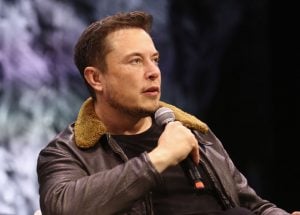Elon Musk Vows Earnings-Call Abstinence After Record Quarter
Tesla's 'Technoking' to steer clear 'unless there's something important I need to say.'

Elon Musk (Photo by Diego Donamaria/Getty Images for SXSW)
Tesla stock has routinely been the most shorted security on Wall Street. Why is a bit of a mystery: For over a decade now, shorting Tesla stock has proven one of the most disastrous financial decisions anyone could make.
As a Tesla shareholder myself, I obviously believe in the financial viability of the company — although “belief” might not be the right way to describe it. The price of Tesla stock increased in the neighborhood of 6,000 percent during its first decade of existence. So, thinking that Tesla has a solid future as a going concern is more acknowledging the irrefutable evidence right in front of your eyes at this point than it is a matter of faith.
Still, the latest earnings call, and the company’s financial results from the second quarter of this year, are important in that they demonstrate the maturation of Tesla’s revenue stream.
As different as Tesla is from its competitors, for the first time its financials, at least, are starting to resemble those of other automakers. This is not a bad sign for the prospect of Elon Musk actually carrying out his plan to skip earnings calls. (More on this later.)
Record Profits Face Some Headwinds
For the second quarter of this year, the electric automaker largely shrugged off the global chip shortage that has plagued many companies in the auto industry to post a record $1.1 billion profit. This marks Tesla’s eighth profitable quarter in a row, and the $1.1 billion figure crushed Wall Street’s Q2 expectation of around $600 million in profits.
It wasn’t all good news for Tesla. CEO (or “Technoking,” as he prefers to be called) Musk noted on the company’s earnings call that the much-anticipated Cybertruck could be further delayed due to parts shortages — although Tesla executives remained confident that the Cybertruck would still go into production sometime later this year. Tesla also announced an additional delay of the Tesla Semi, which is now set to launch in 2022.
Another less-than-thrilling aspect of Tesla’s second-quarter financials was its $23 million bitcoin-related impairment. In February, Tesla indicated that it would invest $1.5 billion in bitcoin. In the first quarter of 2021, Tesla reported a $101 million net gain from sales of bitcoin as the price of the cryptocurrency rose. Cryptocurrencies plunged in Q2, however, making Tesla’s bitcoin holdings significantly less valuable. While no company wants to see the price of a significant investment drop, Tesla earnings shouldn’t be affected by the fall in the value of bitcoin unless and until the company actually divests itself of more of its cryptocurrency holdings.
Profits From Core Products
Despite a few hiccups, the Q2 earnings report is still overwhelmingly good news for Tesla. This past quarter, Tesla’s pretax margin — a financial accounting tool looked to as a proxy for the operating efficiency of a company — was respectable, at about 11 percent.
What’s more, Tesla’s pretax margin did not rely heavily in Q2 on one-off items, like offloading appreciated bitcoin or selling environmental credits to other manufacturers. Costs increased modestly, by about 9 percent, but overall revenue was up a healthy 14 percent from the first quarter. Tesla’s solar and energy storage division saw massive revenue gains too. All of this, of course, was in the midst of a global pandemic and an industry-wide semiconductor shortage.
Technoking Vows Earnings-Call Abstinence
It wasn’t just the numbers that surprised Wall Street insiders though. Musk has never seemed particularly constrained by expectations, and he dashed them yet again when he said he would be unlikely to be on future earnings calls personally. “Unless there’s something important I need to say,” Musk added on his recent call with analysts and others. As to what the Technoking might think is important enough to warrant his presence on a future earnings call, only time will tell.
There is nothing that necessarily requires a CEO to be on earnings calls. Some applauded Musk’s decision to limit his time on the phone with a great many people. Indeed, Musk is famously prone to have to dial back one faux pas or another (even when committed against people who just about anyone would find annoying).
Other commentators, though, seemed to think Musk should stay on future calls to counter the threat of Tesla rivals, which are now dramatically increasing their spending in the electric vehicle segment of the market.
Musk is certainly unconventional. Yet, if he’s proven anything, it’s that there isn’t just the one stodgy old way to successfully run a company. If you ask me, after Tesla’s Q2 results, and the record of profitable quarters they cap, Musk has certainly earned a break from earnings calls.
Jonathan Wolf is a civil litigator and author of Your Debt-Free JD (affiliate link). He has taught legal writing, written for a wide variety of publications, and made it both his business and his pleasure to be financially and scientifically literate. Any views he expresses are probably pure gold, but are nonetheless solely his own and should not be attributed to any organization with which he is affiliated. He wouldn’t want to share the credit anyway. He can be reached at jon_wolf@hotmail.com.